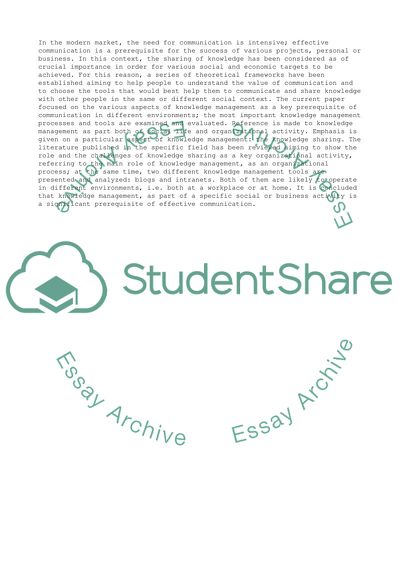Cite this document
(Knowledge Management Processes & Tools Dissertation - 1, n.d.)
Knowledge Management Processes & Tools Dissertation - 1. Retrieved from https://studentshare.org/management/1748995-knowledge-management-processes-tools
Knowledge Management Processes & Tools Dissertation - 1. Retrieved from https://studentshare.org/management/1748995-knowledge-management-processes-tools
(Knowledge Management Processes & Tools Dissertation - 1)
Knowledge Management Processes & Tools Dissertation - 1. https://studentshare.org/management/1748995-knowledge-management-processes-tools.
Knowledge Management Processes & Tools Dissertation - 1. https://studentshare.org/management/1748995-knowledge-management-processes-tools.
“Knowledge Management Processes & Tools Dissertation - 1”, n.d. https://studentshare.org/management/1748995-knowledge-management-processes-tools.


